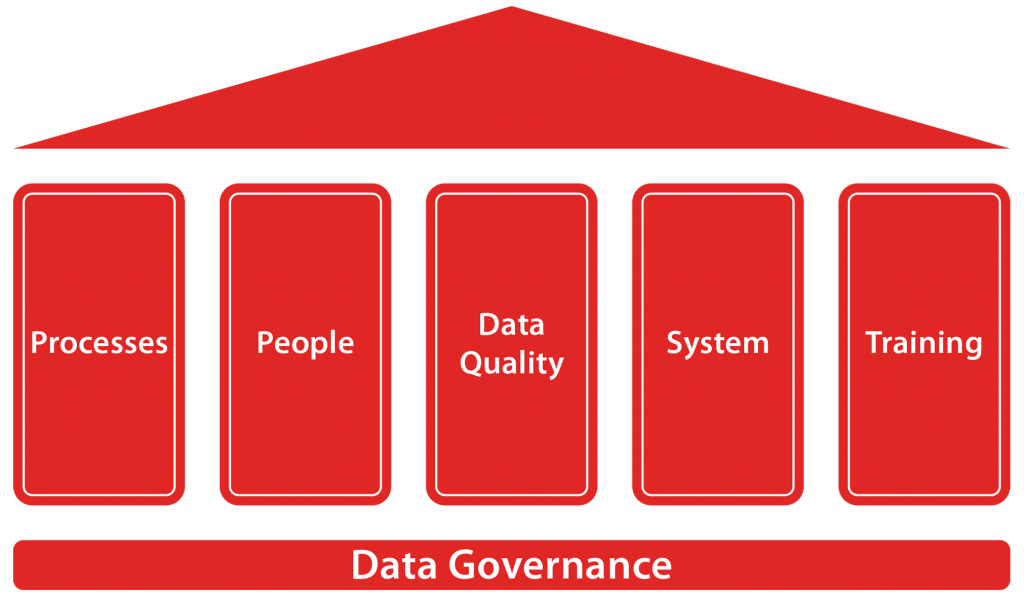In today's swiftly changing digital environment, data holds immense value for various organisations, including non-governmental organisations (NGOs). To make the most of this valuable resource while ensuring its integrity and confidentiality, data governance assumes a critical role. Ronan Analytics strongly advocates adopting a holistic data governance approach for the following five pillars:
1. Processes: Establishing Clear Guidelines
Solid data governance requires well-defined processes. Developing and documenting data management policies and procedures ensures consistency and uniformity in data handling practices. These processes must address data collection, storage, sharing, retention, and disposal to minimise the risk of data breaches and to maintain compliance with relevant data protection regulations. Regular audits and assessments help identify potential gaps and inefficiencies, enabling NGOs to continuously improve their data governance strategies.
2. People: Empowering Data Stewards
Cultivating a data-driven culture within an NGO involves appointing dedicated data stewards or a data governance team. These individuals act as custodians of data, responsible for overseeing data quality, access, and security. By involving stakeholders from different teams, the organisation can foster collaboration, ensuring that data governance efforts are aligned with the NGO's overarching goals. An inclusive approach encourages data-driven decision-making across all levels and strengthens the organisation's commitment to data compliance and ethical data usage.
3. Data Quality: Trustworthy Insights
Data is only valuable when it is accurate, reliable, and relevant. NGOs heavily rely on data to drive their initiatives, advocacy and strategic planning. However, erroneous data can lead to misguided decisions and jeopardise the NGO's impact. Implementing data quality standards and procedures helps maintain clean and consistent data, thereby improving the reliability of insights derived from analytics and reporting. Regular data cleansing and validation processes should be conducted to ensure the data remains up-to-date and fit for use.
4. System: Leveraging Technology
A robust data system is vital for efficiently managing data across the NGO. The right technology solutions can streamline data workflows, enhance data security, and facilitate compliance. From data storage and access controls to data encryption and anonymisation, investing in advanced data management platforms ensures that sensitive information is protected while remaining accessible to authorised personnel. A well-integrated data system simplifies reporting and analysis, leading to more informed decision-making and resource allocation.
5. Training: Building Data Literacy
A key element in successful data governance is investing in training and education. NGOs must prioritise data literacy programs to equip team members with the necessary skills to understand, interpret, and use data effectively. Training initiatives can cover topics such as data privacy, data security best practices, and data analytics tools. Moreover, fostering a data-driven mindset among team members helps create a culture of data stewardship and accountability, leading to improved data handling practices throughout the organisation.
Data governance is a critical undertaking for NGOs seeking to maximise the potential of their data while safeguarding the privacy and security of the individuals they serve. Ronan Analytics' five pillars of data governance provide a holistic framework to enhance data management practices within the NGO sector.
By empowering data stewards, establishing clear guidelines, ensuring data quality, leveraging technology, and investing in data literacy, NGOs can unlock the full potential of their data and drive positive change in their strategic planning and service delivery. Embracing these pillars will not only strengthen data governance but also reinforce the NGO's commitment to transparency, ethics, and social impact.







